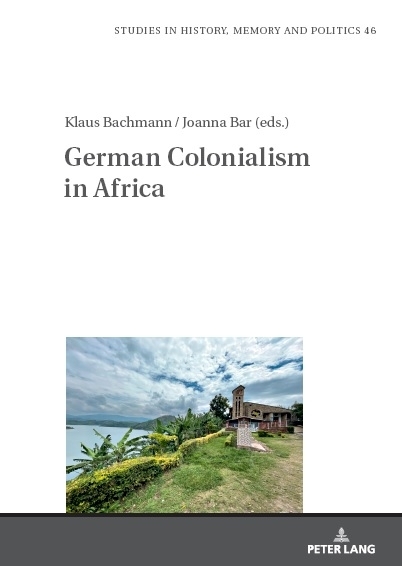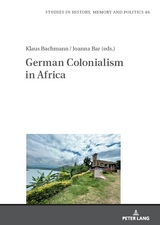German Colonialism in Africa
Peter Lang Gmbh, Internationaler Verlag Der Wissenschaften
978-3-631-89638-9 (ISBN)
In this volume, six experts from Europe and Africa present new insights from the field about various aspects of Germany's colonial rule in Africa, raising doubt about the hitherto interpretations of some important events. The outbreak of violence in Rwanda 1904 was neither an anti-colonial Hutu uprising nor the result of a royal court intrigue against German rule, but instead a response to raids, the White Father missionaries had carried out against the local population. German colonialism in Rwanda was much less benevolent than it is today recalled in Rwanda, because its main edge was directed against the population in the North whose collective memory has been marginalized in the royal abanyiginya narrative, under colonial rule and after the genocide. Other chapters deal with the link between colonial boundaries and ethnic conflict and the counter-intuitive consequences of the German/Namibian settlement about colonial atrocities against the Herero and Nama.
lt;p>Klaus Bachmann is a professor of social sciences at SWPS University in Warsaw, Poland. He has specialized in colonial history in Africa, transitional justice and international criminal justice.
Joanna Bar is an associate professor at the Institute of the Middle and Far East of the Jagiellonian University. Her research field centers around the social and political change in East African countries, with a particular focus on contemporary social and political changes in Rwanda, Tanzania and Burundi.
1. Benevolent colonialism? German colonial rule and the reconstruction of Rwanda's history today. 2. Between the King, the Church and the Emperor - Ijwi Island as a Rwandan, German, Belgian and Protestant colony. 3. The IRIBA Centre & the Young Artists in the City Programme Rwanda: The experience of a Decolonial Documentation, on German colonization. 4. Contemporary conflicts in Cameroon and their roots in colonial boundary delimitation. 5. Four famines in Rwanda. The social and political impact of natural disasters on the legitimacy of Rwandan governance. 6. Paying for colonial atrocities. The paradoxical outcome and the unexpected adverse consequences of the German- Namibian settlement concerning the genocide against the Herero and Nama. 7. A keyhole to Rwandan history. Missionary accounts about precolonial Rwanda and their limitations. 8. The White Fathers and Rwandan Society during the German colonial period (1900- 1916).
| Erscheinungsdatum | 30.05.2023 |
|---|---|
| Reihe/Serie | Studies in History, Memory and Politics ; 46 |
| Verlagsort | Berlin |
| Sprache | englisch |
| Maße | 148 x 210 mm |
| Gewicht | 367 g |
| Themenwelt | Geisteswissenschaften ► Geschichte ► Regional- / Ländergeschichte |
| Geschichte ► Teilgebiete der Geschichte ► Kulturgeschichte | |
| Geschichte ► Teilgebiete der Geschichte ► Sozialgeschichte | |
| Geschichte ► Teilgebiete der Geschichte ► Wirtschaftsgeschichte | |
| Schlagworte | Africa • Bachmann • Barbara • Colonial atrocities • Colonialism • German • German/Namibian settlement • Germany’s colonial rule in Africa • Klaus • Klich • Kluczewska |
| ISBN-10 | 3-631-89638-7 / 3631896387 |
| ISBN-13 | 978-3-631-89638-9 / 9783631896389 |
| Zustand | Neuware |
| Haben Sie eine Frage zum Produkt? |
aus dem Bereich




